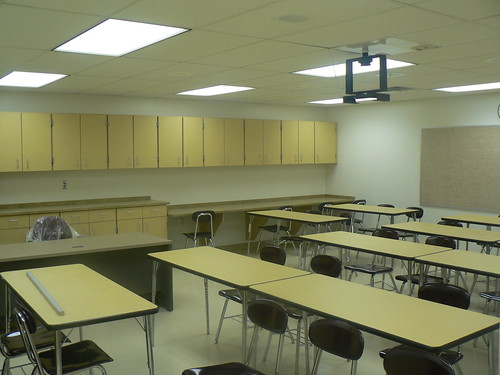Let's start our discussion with this question: what if a school you are looking at is not accredited? Does it matter?
Does Accreditation Matter?
There are plenty of fine private schools which are not accredited. But the fact that they are not accredited means that you and I have to do a lot more basic due diligence as we evaluate unaccredited schools. Many of the foundational issues which an accreditation process covers in great detail now become our responsibility to investigate. Think of this investigation just like the inspection which you commission when you put an offer on a house. The house looks perfect. But is its infrastructure perfect? Are there flaws which are not readily apparent? The inspector's report will reveal the good and the items which need fixing. That's basically how accreditation works. The properly executed accreditation process celebrates the school's good points and offers suggestions for fixing what is deficient.
Does Accreditation Matter for College Admissions?
Some experts claim that it doesn't matter much whether or not a high school or school district is accredited. The issue surfaces any time a school or a school district loses its accreditation or is threatened with its loss. The truth of the matter is that accreditation is just one piece of the admissions profile for candidates. I was unable to find any examples of a college rejecting an otherwise well-qualified candidate simply because she had the misfortune to graduate from a school which had lost its accreditation. [Source: Maureen Downey in AJC.com blogs]
I understand that point of view but I still feel that accreditation matters a great deal for private K-12 schools simply because there are very few other standards by which you can measure how good a private school. Yes, private schools have to teach to a minimum curriculum standard as set forth by the state board of education. Yes, they have to meet local zoning and safety laws. Yes, they have to employee qualified teachers. Yes, they have to keep their financial house in order. But the very nature of a private school dictates that it can fill in these broad regulatory outlines with whatever material it chooses.
The accreditation process for a private school is a thorough review of all the things which matter to you and me as parents. We want to know that the academics are sound and that the school is managed properly. Accreditation intrinsically implies that all the necessary due diligence has been done. That should give us peace of mind especially when we are looking at schools about which we know very little. That seal of approval which institutional accreditation gives is very important to us.
Parental Due Diligence
Most of the time we parents focus on how we feel about the school subjectively. Is it a good fit for your child? Does it offer enough AP courses? Is the sports program varied enough? Questions like these are at the top of our list. These are important questions to which we need answers. But the kind of questions which the accreditation process covers examine the nuts and bolts of a school's operation and vision in far greater detail than we could ever hope to do. Who has the time and energy to do all that investigating?
![]() by stu_spivack
by stu_spivack
Look at the list of standards which The Commission on Independent Schools of the New England Association of Schools and Colleges uses for its evaluation of independent schools. You and I would certainly be aware of most of the items on the list. We might even ask detailed questions about a couple of them. But, frankly, the peace of mind and reassurance we get from knowing that all of these standards, not just a few of them, have been examined is priceless. That to me is the value of accreditation from our perspective as parents.
What is Accreditation?
"Accreditation is an external, objective validation of school quality and student achievement that fosters continuous school improvement." [Source: Middle States Association]
A school which wishes to be accredited applies to the regional association as a candidate for accreditation. That sets in motion a multi-year process involving a self-study by the institution together with a final revew and report to the accrediting association. The self-study follows procedures and processes set forth by the accrediting commission. It is thorough, detailed and a blueprint both for accreditation and future success.
How to Check Accreditations
There are two ways to check whether a school is accredited or not. Most schools will proudly list their accreditation on their web sites and other publicity materials. The second way of confirming information about a school's accreditation status is to visit one of the accrediting organization sites listed at the end of this article.
How to Find the Right School
The New England Association of Schools and Colleges offers some excellent suggestions on how to find the right school for your child. The accreditation process gives parents confidence that they are making the right choices for their children's education. A private school education requires a substantial financial investment over a period of up to thirteen years assuming your child goes to private school from pre-kindergarten through 12th grade. A private school education should ideally be a continuous good experience from the early childhood years right on through high school.
Another point to consider is that the National Association of Independent Schools requires that its member schools be accredited by one of the regional accreditation organizations listed below.
Schools which belong to the following associations frequently seek regional accreditation. These schools hold a dual accreditation, one with the specialist association and the other with the regional association. This offers parents an additional measure of comfort because they know that the school meets the spcialist standards, for example, of the Waldorf Schools, as well as the standards of the regional accrediting association.
- The Association of Christian Schools International (ACSI)
- The Association of Waldorf Schools of North America (AWSNA)
- Catholic Dioceses
The Benefits of Accreditation
"Accreditation fosters stakeholder involvement and commitment by providing opportunities for greater involvement in charting the direction and future of the school. Accreditation offers a mechanism to involve constituent groups in creating a vision of the future, not just allowing it to happen." [Source: Commissions on Elementary and Secondary Schools: Middle States Association of Colleges and Schools]
Obviously in a short piece like this one I am skimming the surface of the subject. However, to me the above statement says what I as a parent want to hear, namely that my involvement as a stakeholder is wanted and appreciated. Indeed it is vital to the accreditation process. That is one of the fundamental reasons why I would send my child to a private school. My voice will be heard. We won't just be another number. When your child attends private school you become a partner in the education process. The school, you and your child are partners - stakeholders - in her schooling.
![]() by striatic
by striatic
Accreditation then is important to us parents. Accreditation gives us the assurance that an independent, objective peer review of the school has been performed in the past, indeed, in many cases, probably quite a few times. Accreditation reassures us parents that the school has a plan in place to achieve its vision and attain its objectives.
Accreditation is one more box we parents should be able to check as we review schools which we feel might be a good fit for our requirements.
List of Accreditation Organizations for Private Schools
Middle States Commission on Colleges and Schools
Commissions on Elementary and Secondary Schools
New England Association of Schools and Colleges
Commission on Independent Schools
North Central Association of Colleges and Schools
Commission on Accreditation and School Improvement (CASI)
Southern Association of Colleges and Schools
Council on Accreditation and School Improvement
Western Association of Schools and Colleges
The Accrediting Commission for Schools
Questions? Contact me on Twitter. @privateschl
























